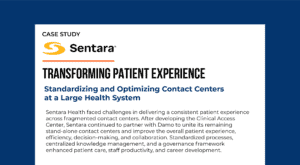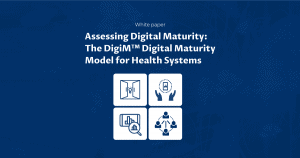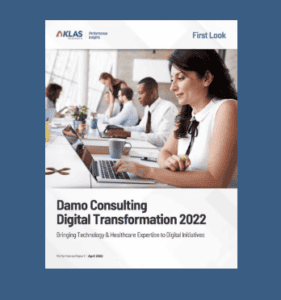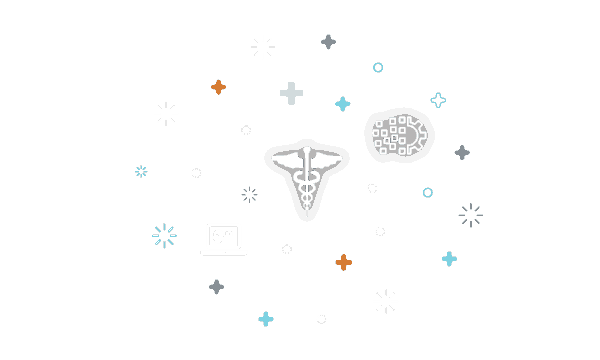Healthcare Data and Analytics: Unlocking the Future of Pediatric Care
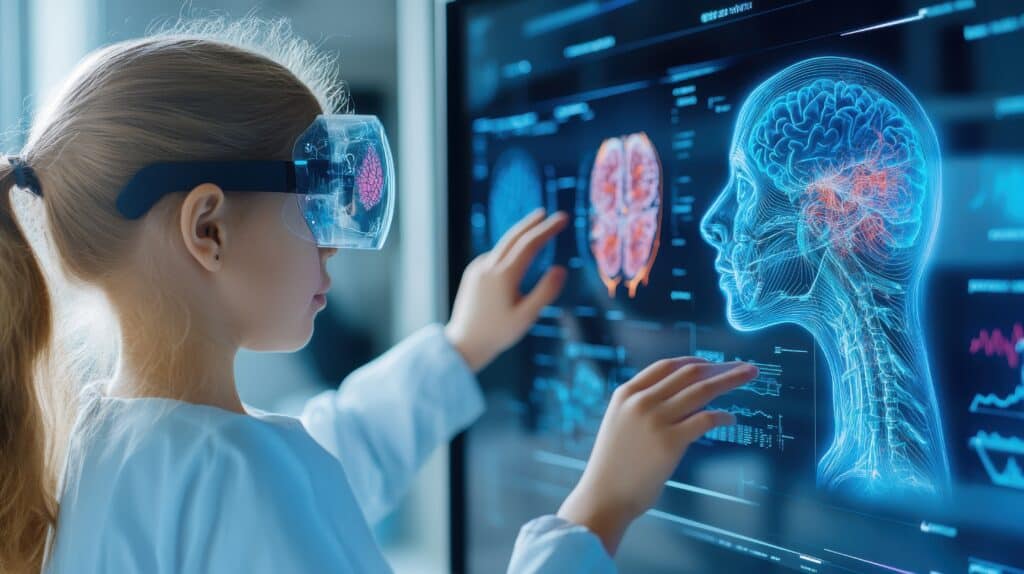
“One of the major challenges in healthcare is dealing with data and unlocking silos,” says Jawad Khan, Chief Data & Analytics Officer of the Akron Children’s Hospital, on The Big Unlock Podcast. According to Jawad, 80-90% of analytics is generated using only 20% of available data. A significant amount of unstructured and imaging data remains untapped, creating challenges for healthcare organizations to adopt more multi-modal approaches to fully leverage their data for better patient care and operational efficiency. By integrating emerging technologies like AI and adopting common data standards, healthcare providers can begin to unlock the true potential of their data.
Listen to the full conversation
Akron Children’s Hospital, a leading pediatric facility in Northern Ohio, stands at the forefront of this transformation. Jawad Khan shared insights from his 15-year journey in healthcare data and analytics during his conversation with Rohit Mahajan, Managing Partner and CEO of BigRio and Damo, on the Big Unlock Podcast.
Leveraging Digital Transformation to Tackle Pediatric Healthcare Challenges
One of the most prominent challenges in healthcare, as Jawad pointed out, is the fragmentation of data across proprietary systems. Despite the significant advancements in Electronic Health Records (EHR) and other healthcare applications, data often remains locked within siloed systems, making it difficult to access, integrate, and utilize effectively. At Akron Children’s Hospital, the integration of a single EHR system has streamlined operations. However, the broader IT ecosystem comprises around 300 applications that generate critical data. This creates the ongoing challenge of unlocking that data and converting it into actionable insights.
“Data is critically important and it’s very difficult for any institution, including ours, to unlock all of that data, convert it into information, and generate knowledge that can be leveraged.”
Jawad Khan, Chief Data & Analytics Officer of the Akron Children’s Hospital
Over the past decade, the shift from siloed databases to open platforms like public cloud solutions and Lakehouse architectures has improved access to data. This allows healthcare providers to make data-informed decisions, both in real-time and for long-term strategic planning. However, while significant progress has been made, the journey toward complete data accessibility and utilization continues.
Digital transformation is central to Akron Children’s approach to pediatric care. According to Jawad, the hospital’s mission is simple but profound: to provide the best possible care as if the children were their own. This patient-centered philosophy drives all of their digital initiatives.
One example of digital transformation at Akron Children’s is the focus on providing holistic care. The hospital not only treats children when they are ill but also emphasizes wellness programs that aim to keep them healthy throughout their lives. Data and analytics play a pivotal role in ensuring the success of these programs. Through partnerships with schools and community organizations, the hospital leverages data to track the health and well-being of children over time, helping to prevent illnesses before they become serious.
Importance of Data Interoperability in Pediatric Healthcare
Interoperability—the ability for different healthcare systems to exchange and use patient data seamlessly—is another key area of focus for Akron Children’s. While advances in EHR technology have improved data-sharing capabilities, challenges remain, particularly when dealing with non-standardized data systems.
Akron Children’s, which uses Epic’s EHR system, benefits from backend capabilities that allow the exchange of information with other Epic hospitals, as well as some non-Epic systems. But not all hospitals have these capabilities, and when that happens, traditional methods such as calling or faxing records are still required.
Jawad explained that while interoperability has improved significantly over the years, “we still rely on legacy methods that aren’t timely.” This highlights the importance of developing more standardized data exchange protocols across the healthcare industry to ensure timely access to critical patient information, regardless of where they seek care.
The Role of AI and GenAI in Transforming Healthcare
The future of healthcare analytics is increasingly tied to the adoption of artificial intelligence (AI) and, more recently, generative AI (GenAI). Jawad shared that Akron Children’s is actively exploring GenAI for various applications, with one promising use case being physician note summarization.
“GenAI helps us automate documentation and makes it more efficient; which is a huge burden on healthcare providers. We’re using GenAI for note summarization for physicians to reduce pajama time – time spent outside clinical hours completing summaries of visits”
Jawad Khan, Chief Data & Analytics Officer of the Akron Children’s Hospital
Beyond documentation, AI is also making waves in other areas of healthcare. Pre-authorizations, inbox management, and automating responses to routine queries are just a few examples of how AI can alleviate administrative burdens. For instance, auto-reply systems, with human oversight, are being tested to handle common messages in healthcare providers’ inboxes, allowing them to focus on more critical tasks.
However, Jawad emphasized that GenAI’s most transformative potential lies in data analytics. By enabling natural language querying, GenAI allows users—whether they are physicians, administrators, or patients—to ask questions in plain language and receive data insights without requiring complex dashboards or reports. Akron Children’s is piloting these capabilities, which could revolutionize how healthcare data and analytics is accessed and used.
Securing the Future: Governance and Ethics in AI Adoption
With any new technology, particularly AI, there are governance and ethical considerations. In healthcare, where human lives are at stake, these concerns are magnified. Jawad stressed the importance of validating and curating AI solutions before implementing them. Akron Children’s has established an AI committee that rigorously reviews potential AI applications, ensuring that they meet the highest standards of accuracy, security, and patient safety.
“We are a regulated industry, and we must make sure that since we are dealing with human lives, all healthcare solutions are validated, curated, secure, and thoroughly tested before they are implemented.”
Jawad Khan, Chief Data & Analytics Officer of the Akron Children’s Hospital
Data governance structures are also in place to oversee the broader use of data, from curation and validation to advanced analytics such as predictive modeling and machine learning.
The Road Ahead: Unlocking the Potential of Healthcare Data and Analytics
Looking ahead, Jawad envisions a future where healthcare becomes more data-savvy and multi-modal in its approach. Most healthcare analytics are generated from just a small portion of the available data. The challenge, he believes, is to unlock the data that goes unused, including unstructured data and imaging data.
By adopting common data standards like FHIR and OMOP, healthcare organizations can improve interoperability and facilitate easier data exchange. Additionally, presenting data through application programming interfaces (APIs) will be crucial to enabling apps and other tools to interact with healthcare systems seamlessly.
The journey toward fully unlocking the potential of healthcare data and analytics is ongoing. With the right technology, governance, and a patient-centered focus, the future holds exciting possibilities for improving patient care and operational efficiency. At Akron Children’s, Jawad and his team are at the forefront of this transformation, ensuring that data and analytics become central to the future of pediatric healthcare.
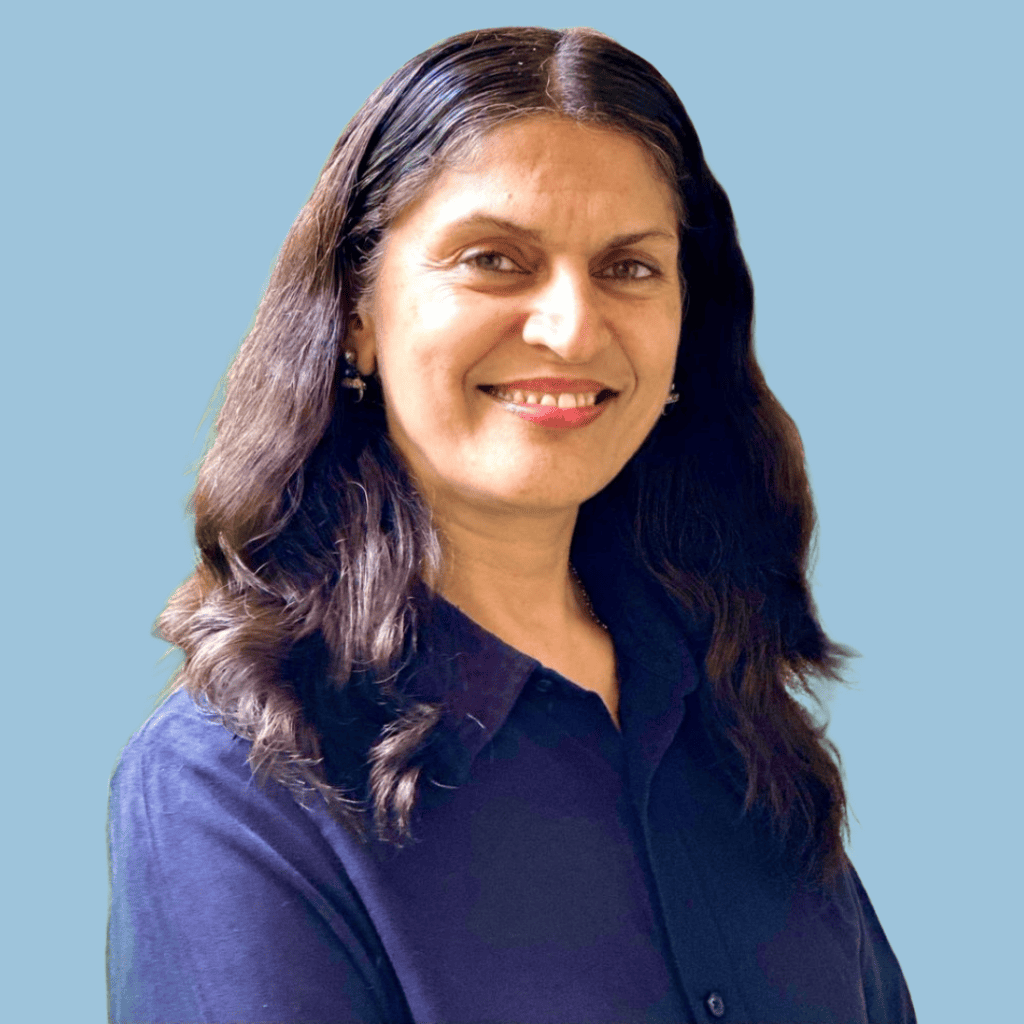
Ritu M. Uberoy
Ritu has over twenty-five years of experience in the software and information technology industry in the United States and in India. She established Saviance Technologies in India and has been involved in the delivery of several successful software projects and products to clients in various industry segments.
Ritu completed AI for Health Care: Concepts and Applications from the Harvard T.H. Chan School of Public Health and Applied Generative AI for Digital Transformation from MIT Professional Education. She has successfully taught Gen AI concepts in a classroom setting in Houston and in workshop settings to C-Suite leaders in Boston and Cleveland. She attended HIMSS in March 2024 at Orlando and the Imagination in Action AI Summit at MIT in April 2024. She is also responsible for the GenAI Center of Excellence at BigRio and DigiMTM Digital Maturity Model and Assessment at Damo.
Ritu earned her Bachelor’s degree in Computer Science from Delhi Institute of Technology (now NSIT) and a Master’s degree in Computer Science from Santa Clara University in California. She has participated in the Fellow’s program at The Wharton School, University of Pennsylvania.

